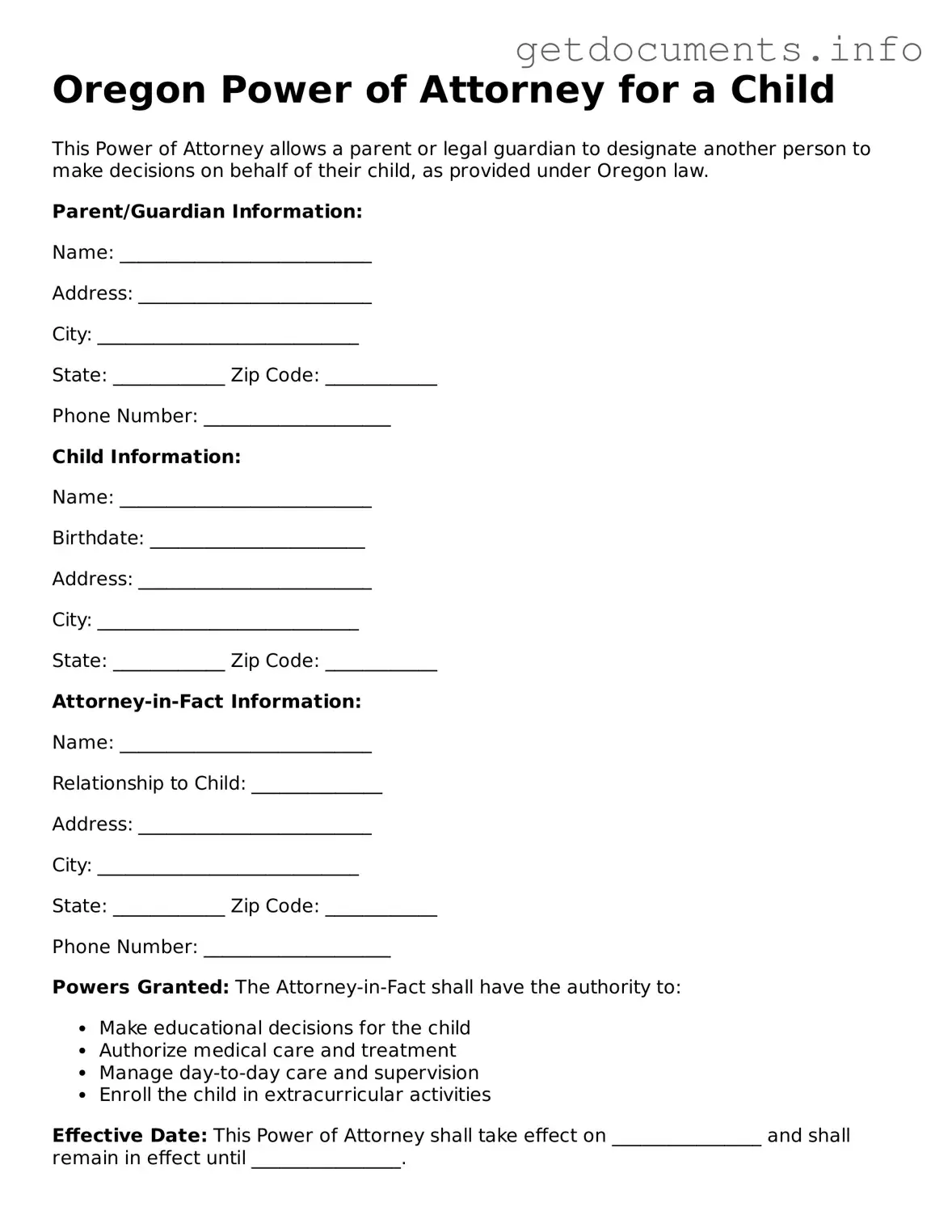Free Power of Attorney for a Child Template for Oregon
The Oregon Power of Attorney for a Child form allows a parent or legal guardian to designate another adult to make decisions on behalf of their child. This legal document ensures that the designated individual can act in the child's best interests when the parent or guardian is unavailable. To get started on filling out this important form, click the button below.
Access Power of Attorney for a Child Editor

Free Power of Attorney for a Child Template for Oregon
Access Power of Attorney for a Child Editor
Got places to be? Complete the form fast
Fill out Power of Attorney for a Child online and avoid printing or scanning.
Access Power of Attorney for a Child Editor
or
⇩ PDF File
